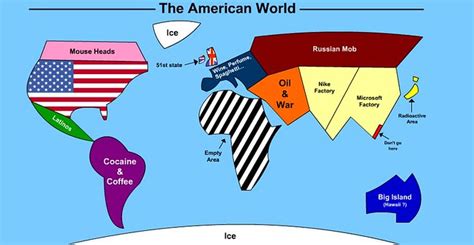
Soaring costs of living, political polarization, and other societal stressors are prompting many Americans to consider a life abroad, with European countries topping the list of desired destinations. Portugal, Spain, and Italy lead the pack, drawing interest for their affordable living, rich culture, and appealing lifestyles.
A confluence of factors, from economic anxieties to shifting political landscapes, is fueling a surge in Americans exploring the possibility of relocating overseas. While the dream of a European escape isn’t new, recent data indicates a heightened interest, particularly in countries offering a perceived better quality of life, lower cost of living, and a more relaxed pace.
Portugal: The Top Choice for American Expats
Portugal consistently ranks high among Americans seeking a new home, and for good reason. “Portugal offers a compelling combination of affordability, pleasant climate, and a welcoming culture,” explains relocation expert Sarah Miller. The cost of living is significantly lower than in many parts of the United States, particularly in areas outside of major cities like Lisbon and Porto. This affordability extends to housing, groceries, and transportation, making it an attractive option for retirees, remote workers, and families alike.
Beyond the economic advantages, Portugal boasts a rich history, stunning landscapes, and a vibrant cultural scene. From the historic streets of Lisbon to the sun-kissed beaches of the Algarve, Portugal offers a diverse range of experiences. The country is also known for its safety and political stability, further enhancing its appeal to Americans seeking a more secure and peaceful environment. The Portuguese government has also implemented various visa programs designed to attract foreign investment and residents, including the popular D7 Visa, which caters to individuals with passive income.
Spain: A Close Second with Cultural Riches and Diverse Landscapes
Spain, with its diverse regions, vibrant culture, and relatively affordable living costs, secures its position as the second most sought-after destination for American expats. Spain offers a wide array of lifestyle options, from the bustling metropolis of Madrid to the laid-back coastal towns of Andalusia.
“Spain’s appeal lies in its cultural richness, diverse landscapes, and the warmth of its people,” says travel blogger John Davis, who recently relocated to Valencia. The country’s renowned cuisine, world-class art museums, and lively festivals contribute to its allure. Furthermore, Spain’s healthcare system is highly regarded, providing accessible and quality medical care to residents.
The Spanish government also offers various visa options for Americans, including the Non-Lucrative Visa, which allows individuals with sufficient financial means to reside in Spain without engaging in economic activity. The Golden Visa, which requires a significant investment in Spanish property, is another popular option for those seeking permanent residency.
Italy: La Dolce Vita and Historic Charm
Italy, renowned for its captivating history, art, and cuisine, consistently ranks among the top destinations for Americans seeking a European adventure. While Italy can be more expensive than Portugal or Spain, particularly in major tourist cities like Rome and Florence, it offers a unique lifestyle that attracts many.
“Italy’s charm is undeniable,” says cultural historian Maria Rossi. “The country’s rich history, stunning architecture, and unparalleled culinary traditions create an unforgettable experience.” From the rolling hills of Tuscany to the canals of Venice, Italy offers a diverse range of landscapes and cultural experiences.
Italy’s healthcare system is also considered to be of high quality, providing accessible and affordable medical care to residents. The Italian government offers various visa options for Americans, including the Elective Residency Visa, which is designed for individuals who can demonstrate sufficient financial resources to support themselves without working in Italy.
Beyond the Top Three: Exploring Other European Options
While Portugal, Spain, and Italy dominate the list of desired destinations, other European countries are also gaining traction among Americans seeking a change of scenery.
- France: France remains a popular choice, particularly for those drawn to its art, fashion, and cuisine. While Paris can be expensive, other regions of France offer a more affordable lifestyle.
- Germany: Known for its strong economy and efficient infrastructure, Germany appeals to Americans seeking career opportunities and a high standard of living.
- Greece: With its stunning islands, ancient ruins, and warm Mediterranean climate, Greece attracts those seeking a relaxed and culturally rich lifestyle.
- Ireland: The Emerald Isle’s welcoming culture, stunning scenery, and strong ties to the United States make it an appealing option for many Americans.
- Netherlands: With its progressive values, efficient infrastructure, and vibrant cultural scene, the Netherlands offers a high quality of life.
- Switzerland: Known for its stunning alpine scenery, high standard of living, and political stability, Switzerland attracts those seeking a safe and prosperous environment.
- Norway: Norway offers breathtaking natural beauty, a high quality of life, and a strong social safety net, making it an attractive option for those seeking a unique and sustainable lifestyle.
Factors Driving the Exodus: A Deeper Dive
Several factors contribute to the growing interest in relocating overseas, particularly among Americans.
- Cost of Living: The rising cost of living in the United States, particularly in major cities, is a significant driver. Housing costs, healthcare expenses, and everyday necessities are becoming increasingly unaffordable for many Americans.
- Political Polarization: The increasing political polarization in the United States is also prompting some Americans to seek a more stable and less divisive environment.
- Healthcare Concerns: Concerns about the cost and accessibility of healthcare in the United States are also a factor for many.
- Work-Life Balance: Many Americans are seeking a better work-life balance, with more vacation time and a more relaxed pace of life.
- Remote Work Opportunities: The rise of remote work has made it easier for Americans to live and work from anywhere in the world, further fueling the trend of overseas relocation.
- Desire for New Experiences: Some Americans are simply seeking new experiences and a change of scenery, wanting to immerse themselves in different cultures and explore new horizons.
- Safety and Security: Concerns about crime rates and social unrest in certain areas of the United States are also prompting some Americans to seek a safer and more secure environment.
Navigating the Challenges of Relocation
While the prospect of relocating overseas can be exciting, it’s essential to be aware of the challenges involved.
- Visa Requirements: Obtaining the necessary visa to live and work in another country can be a complex and time-consuming process.
- Language Barriers: Learning the local language is crucial for integrating into a new culture and building a life in a foreign country.
- Cultural Differences: Adapting to cultural differences can be challenging, requiring patience, understanding, and a willingness to learn.
- Financial Planning: It’s essential to carefully plan your finances and ensure you have sufficient resources to support yourself in your new country.
- Healthcare Access: Understanding the healthcare system in your new country and ensuring you have access to quality medical care is crucial.
- Social Isolation: Building a social network in a new country can take time and effort.
- Reverse Culture Shock: Returning to the United States after living abroad can also be challenging, as you may experience reverse culture shock.
Expert Advice for Aspiring Expats
Relocation experts advise aspiring expats to conduct thorough research, plan carefully, and seek professional guidance.
“Before making the leap, it’s crucial to visit your desired destination and spend time exploring the local area,” advises relocation consultant Maria Rodriguez. “This will help you get a feel for the culture, the cost of living, and the overall lifestyle.”
It’s also essential to consult with financial advisors and immigration attorneys to ensure you are prepared for the financial and legal aspects of relocation.
“Relocating overseas is a significant decision that requires careful planning and preparation,” says immigration lawyer David Lee. “It’s essential to understand the visa requirements, the tax implications, and the legal framework of your new country.”
The Future of American Expatriation
The trend of Americans relocating overseas is likely to continue in the coming years, driven by the factors outlined above. As remote work becomes more prevalent and the cost of living in the United States continues to rise, more Americans will likely seek opportunities and a better quality of life abroad.
The impact of this trend on the United States remains to be seen. Some worry about the potential loss of talent and economic activity, while others see it as a positive development that can broaden perspectives and foster global understanding.
Ultimately, the decision to relocate overseas is a personal one, driven by individual circumstances and aspirations. However, the growing interest in expatriation reflects a broader trend of Americans seeking a change of pace, a better quality of life, and a more fulfilling existence.
Frequently Asked Questions (FAQ)
-
What are the main reasons Americans are considering moving abroad?
The primary reasons include the high cost of living in the U.S., political polarization, concerns about healthcare costs and accessibility, the desire for a better work-life balance, increased remote work opportunities, and a general desire for new experiences and cultural immersion. As stated by relocation expert Sarah Miller, “Portugal offers a compelling combination of affordability, pleasant climate, and a welcoming culture,” which encapsulates many of these motivations.
-
Which countries are the most popular among Americans looking to relocate, and why?
Portugal, Spain, and Italy are the most popular. Portugal is favored for its affordability, climate, and welcoming culture. Spain attracts people with its cultural richness, diverse landscapes, and warm communities. Italy is beloved for its history, art, and cuisine. Other countries gaining interest include France, Germany, Greece, Ireland, the Netherlands, Switzerland, and Norway.
-
What are some of the challenges Americans might face when moving to a new country?
Challenges include navigating visa requirements, learning a new language, adapting to cultural differences, managing finances in a new environment, understanding the local healthcare system, combating social isolation, and potentially experiencing reverse culture shock upon returning to the U.S. Securing the appropriate visa is often the initial hurdle, as highlighted by immigration lawyer David Lee: “Relocating overseas is a significant decision that requires careful planning and preparation. It’s essential to understand the visa requirements, the tax implications, and the legal framework of your new country.”
-
What kind of visa options are available for Americans looking to move to Portugal or Spain?
Portugal offers the D7 Visa for individuals with passive income. Spain offers the Non-Lucrative Visa for those with sufficient financial means and the Golden Visa for those investing in Spanish property. These visas cater to different financial situations and objectives, making Portugal and Spain accessible to a broader range of potential expats.
-
What advice do experts give to Americans considering an international move?
Experts recommend conducting thorough research, visiting the desired destination beforehand, planning finances carefully, consulting with financial advisors and immigration attorneys, and being prepared for cultural adjustments. Relocation consultant Maria Rodriguez advises: “Before making the leap, it’s crucial to visit your desired destination and spend time exploring the local area. This will help you get a feel for the culture, the cost of living, and the overall lifestyle.” She underscores the significance of firsthand experience to make an informed decision.
In-Depth Analysis: Portugal as a Case Study
Portugal’s rise to prominence as the top destination for American expats warrants a deeper examination. Several factors contribute to its allure, creating a synergistic effect that appeals to a diverse demographic.
-
Economic Advantages: As previously mentioned, the lower cost of living is a primary draw. Numbeo, a cost-of-living database, consistently shows that Portugal is significantly cheaper than the United States, particularly in areas like housing, groceries, and utilities. This financial relief allows individuals and families to stretch their budgets further, enjoy a higher quality of life, and pursue their passions without the constant pressure of financial strain. Furthermore, the Portuguese government offers various tax incentives for foreign residents, further enhancing its financial appeal.
-
Climate and Lifestyle: Portugal’s temperate climate, with mild winters and warm summers, is a major attraction for those seeking a more pleasant and predictable environment. The country’s stunning coastline, with its pristine beaches and dramatic cliffs, offers ample opportunities for outdoor recreation and relaxation. The Portuguese also place a high value on work-life balance, fostering a more relaxed and less stressful lifestyle than is often found in the United States. Socializing is a central part of Portuguese culture, with people frequently gathering in cafes, restaurants, and public spaces to connect and enjoy each other’s company.
-
Culture and Heritage: Portugal boasts a rich history and a vibrant cultural scene. From the ancient ruins of Roman settlements to the magnificent architecture of its medieval cities, Portugal offers a glimpse into a fascinating past. The country is also known for its traditional music, Fado, and its delicious cuisine, which features fresh seafood, flavorful spices, and locally grown produce. The Portuguese are generally known for their warmth, hospitality, and welcoming attitude towards foreigners, making it easier for expats to integrate into the local community.
-
Healthcare and Safety: Portugal’s healthcare system is ranked among the best in the world, providing accessible and affordable medical care to residents. The country also has a relatively low crime rate, making it a safe and secure place to live. These factors contribute to a sense of peace and well-being, which is a major draw for Americans seeking a more tranquil and secure environment.
-
Visa Programs and Residency Options: The Portuguese government has implemented various visa programs designed to attract foreign investment and residents. The D7 Visa, which is designed for individuals with passive income, is a particularly popular option for retirees and those with remote work arrangements. The Golden Visa, which requires a significant investment in Portuguese property, is another pathway to residency for those with substantial financial resources. These visa programs make it relatively easy for Americans to obtain legal residency in Portugal and enjoy the benefits of living in the country.
The Broader Context: Globalization and the Changing Landscape of Expatriation
The increasing interest in expatriation among Americans is part of a broader global trend. As the world becomes more interconnected and technology makes it easier to live and work from anywhere, more people are choosing to relocate to other countries for various reasons.
-
Globalization: The increasing globalization of the economy and culture has made it easier for people to move between countries and adapt to new environments. Language barriers are becoming less of an issue, thanks to translation technology and the widespread use of English. Travel is becoming more affordable and accessible, making it easier for people to explore different parts of the world.
-
Technological Advancements: The rise of remote work and the internet has made it possible for people to live and work from anywhere with an internet connection. This has opened up new opportunities for individuals to pursue their careers while living in a country that offers a better quality of life or a lower cost of living.
-
Demographic Shifts: Aging populations in many Western countries are creating a need for skilled workers and younger residents. Governments are increasingly implementing policies to attract foreign talent and encourage immigration.
-
Geopolitical Factors: Political instability, social unrest, and economic challenges in certain countries are prompting people to seek refuge and opportunity in more stable and prosperous nations.
The Impact on the United States: A Double-Edged Sword
The increasing number of Americans relocating overseas could have both positive and negative consequences for the United States.
-
Potential Loss of Talent: The departure of skilled workers and entrepreneurs could lead to a loss of innovation and economic productivity in the United States.
-
Reduced Tax Revenue: Americans living abroad may no longer pay U.S. taxes, which could reduce government revenue.
-
Brain Drain: The emigration of highly educated and skilled individuals could contribute to a “brain drain” in certain sectors of the U.S. economy.
-
Potential Benefits: On the other hand, Americans living abroad can serve as ambassadors for U.S. culture and values, promoting understanding and cooperation between countries. They can also contribute to the U.S. economy by sending remittances back home and investing in U.S. businesses. Furthermore, their experiences and perspectives can enrich U.S. society when they eventually return.
Conclusion: A Quest for a Better Life
The growing trend of Americans considering relocation to Europe, particularly Portugal, Spain, and Italy, reflects a deeper quest for a better quality of life, affordability, and a more fulfilling existence. While the decision to move abroad is a significant one with its own set of challenges, the allure of a different culture, a more relaxed pace, and a lower cost of living is proving increasingly irresistible for many Americans seeking a change. As the world continues to evolve and globalize, the trend of expatriation is likely to continue, shaping the future of both the United States and the countries that welcome American expats.









